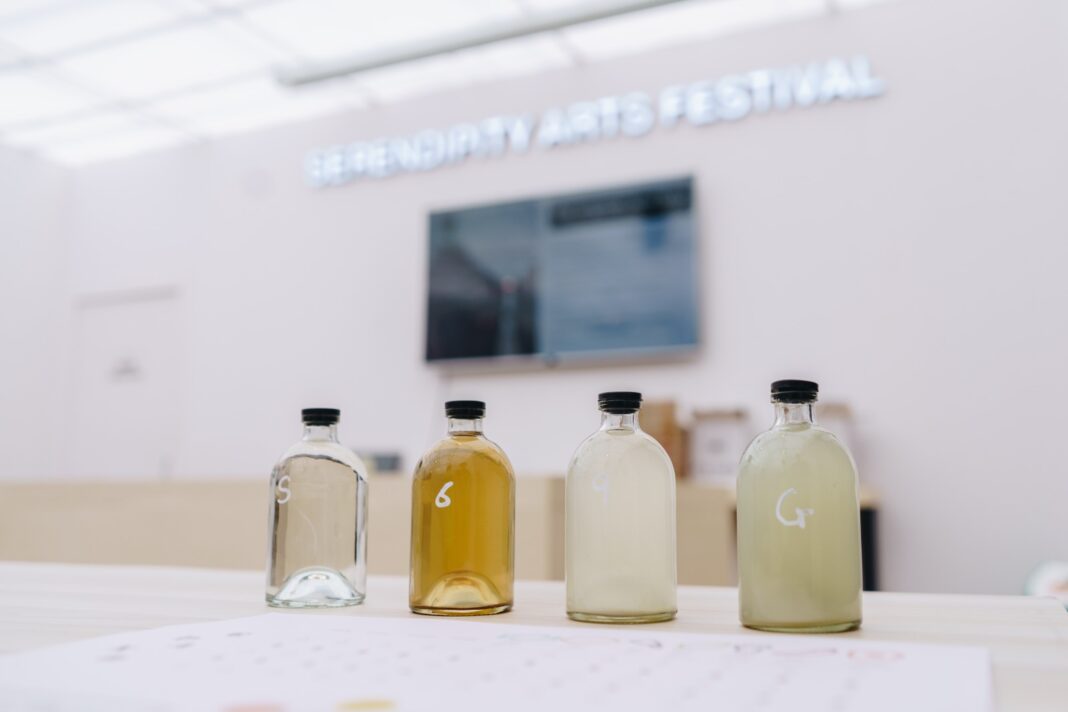Goa’s Coconut Vinegar has Potential to become State’s Culinary Currency: Industry Expert

~ The unique flavour profile of Goa’s coconut vinegar has the potential to solidify Goa’s name on the culinary map due to its synonymy with Goan Catholic cuisine.
~ Appellations in favour of coconut vinegar, raising its price profile above Rs. 100 per litre and more chefs celebrating coconut vinegar as a product can be used to revive the dying art of vinegar-making.
Panaji, December 2023 – Imparting a distinct flavour that guarantees to make the identity of any dish that utilises it synonymous with Goan Catholic cuisine, distilled Goan coconut vinegar or ‘xingel’ has the potential to become Goa’s culinary currency if marketed correctly, said Hansel Vaz, founder of the renowned feni distillery, Fazenda Cazulo.
Vaz highlighted the nuances of coconut vinegar as he facilitated a workshop ‘Goa’s Coconut Vinegar: A Comparative Tasting of a Forgotten Culinary Gem’ curated by Chef Thomas Zacharias and The Locavore Team at the ongoing Serendipity Arts Festival (SAF) 2023.
According to Vaz, this dying art can be revived if policies are introduced to make the process of toddy tapping simpler.
“Toddy tapping is currently done only for alcohol-making purposes; hence, the tapping process needs to be opened to other culinary purposes such as vinegar. The second way to revive this art is to make the product aspirational. Coconut vinegar is only seen as a commodity. As of now, coconut vinegar is only worth Rs. 100 per litre, so it needs to be taken to the next level,” stated Vaz.
Vaz stated that the natural sugars, proteins and flavours present in coconut vinegar are “easily metabolised and imbibed by the body,” and are very healthy.
“We need more chefs to start celebrating coconut vinegar as a product, raise the price profile above Rs. 100 per litre and more appellations in favour of coconut vinegar,” said Vaz.
According to Vaz, the art of making coconut vinegar suffered due to classism (social prejudice against specific caste grouping/s) as there were specialised cooks who acquired this vinegar to cook. “Coconut vinegar was only made on a commission basis. If there was no demand, there was no supply. Families started finding other alternatives,” he said.
Vaz stated that back in the day, every household would prepare coconut vinegar as the fermentation process is easy — toddy just has to be left to react with yeast present in the air until it ferments to a desired flavour and it also does not spoil for a year.
“However, due to the difficulty in tapping toddy due to the coconut tree’s height, the loss of the specialised skill set required for scaling the tree and the aforementioned irregular flavour profile, it has become a dying art that needs to be revived,” said Vaz.
“During the colonial period, vinegar was used as currency by Goa when trading with the West, as foods sent overseas were preserved in it. However, coconut vinegar is a tricky product to mass produce as toddy (sap from the coconut) ferments unevenly, giving every batch a different flavour,” said Vaz.
The introduction of the cashew by the Portuguese during the colonial period also contributed to the humble coconut and its products getting overshadowed by the cashew’s exoticity.
“In only 350 years, the coconut’s importance was shrouded by everyone’s fascination with cashews. We ended up taking the coconut for granted, which needs to be immediately rectified,” said Vaz.




